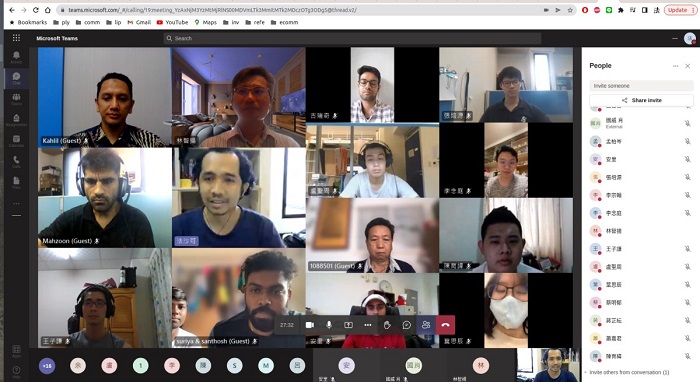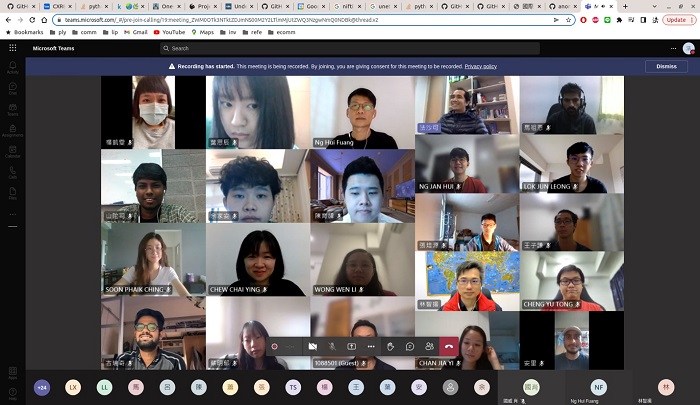In order to introduce how to make a good research, YZU’s Image Processing (EB534) course invited two reputable speakers from Indonesia and Malaysia.
The invited Professors shared their research knowledge and experiences related to digital image processing. This agenda was initiated by Professor Chih-Yang Lin as a course lecturer and collaborated with Professors from Universitas Syiah Kuala (USK) and Universiti Tunku Abdur Rahman (UTAR). This event which was held on April 25 and May 16, invited two expert speakers: Dr. Kahlil Muchtar (USK, Indonesia) and Dr. Ng Hui Fuang (UTAR, Malaysia).

In the first webinar, Professor Kahlil presented the latest research in image classification and object detection that has been published in international journals and conferences. He also talked about how his lab developed a public image dataset from scratch to support research on coffee bean breed classification. One of the interesting things presented at this webinar was how a young researcher like him came up with an idea for research and published it in high-rank conferences. He expressed that “young researchers must be willing to learn more references and work harder to achieve that goal”. It is an absolute thing that students must do if they want to publish an
outstanding paper.
The second webinar was held on May 16 with Professor Ng as a speaker from Malaysia. Professor Ng is a senior researcher in the field of image processing from one of the best private universities in Malaysia. He has a very good publication record with some of the papers getting high number of citations. Professor Ng shared how to develop basic concepts of image processing into a new idea and produced better results compared to the existing methods. In his research, he developed a new idea on image segmentation using the basic concepts of image threshold and many of the students who take image processing courses are interested in this topic. Professor Ng addressed an important message that in the midst of rapid change and a lot of research being carried out, good ideas alone are not enough. We also need to publish good ideas at the right time so that they can benefit society.

The webinars conducted for more than two hours and it was followed by a Q&A session. In these webinars, besides being attended by participants from the Image Processing class, there were also participants from UTAR Malaysia and Syiah Kuala University Indonesia. This webinar is a good opportunity for local students to get to know students from other countries who might collaborate in the future. More than 70 students registered for this webinar and reported that they found webinar very useful.

 en
en  繁
繁